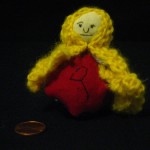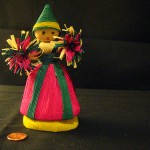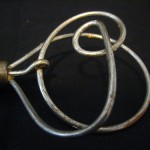IN THIS POST: Douglas Wolk, Dan Reines, Deb Olin, David Shields, Doug Dorst.
This is the tenth installment in a series of twenty posts announcing — in no particular order — which 100 stories will be collected in the Significant Objects book (forthcoming in 2011 from Fantagraphics).

46. Douglas Wolk’s PORTABLE HAIRDRYER story. Excerpt:
Finally, on May 12, 1983, Sanangelo was sharing a motel room with Cowen in Coeur d’Alene, Idaho, where he was booked to play that night. An altercation between them ensued sometime that afternoon; Cowen, in a rage, smashed Sanangelo’s guitar, and the two of them went on to build a bonfire in the parking lot and burn virtually all the possessions they had with them before the police arrived. Five minutes before showtime, Sanangelo turned up at the door of the Little Groove Hut with a black eye, torn clothes, and an unnerving smile on his face, carrying a small plastic case with a yellow travel hair dryer inside — the only item from his luggage that he’d spared from the fire.

47. Dan Reines’ FRIDAY MUG story. Excerpt:
So that’s kinda how the Death Mug became the Death Mug. When Lara got fired, her and Manny and me went to the parking lot and did about five tequila shots each from it, and then when Sharon left to go take care of her mom in Seattle, she brought in some box wine and a bunch of us went over to the Piper and sat on the patio and drank it, and she drank out of the mug. And then she came back after her mom died, and they laid her off about six weeks later, and we did it again, only me and Tracey brought the wine this time and we made sure it was good wine.“Nothing pink!” That was Tracey’s rule. Good rule, right? For wine? “Nothing pink!” Only he said it the way Tracey would say it.

48. Deb Olin Unferth’s PAN FLUTE story. Excerpt:
I was an ambassador once—of a small African nation. All of us diplomats, that is our dream: to be an ambassador. At least once, at least for a little while. Many of us get a little Eastern or African nation for a year or two. We are eager when it happens because our life’s goal is complete. But it isn’t so special after all. Soon it’s over and we continue on. We are diplomats again, and our time of glory is reduced to a sentence we can say in passing at a party, “Oh, I was ambassador there once, for eighteen months.” Or at a meeting, “Well, when I was ambassador, as I recall, witchcraft was still a powerful force in the north. I knew a man who believed his daughter had turned into a tree.”Or when entertaining one’s wife’s friends, “That flute? Oh yes, when I was ambassador, the prince of the country rode two days on a camel to present it to me. Don’t know where he got it. They love plastic, you know. Who are we kidding? Plastic was the real revolution.”
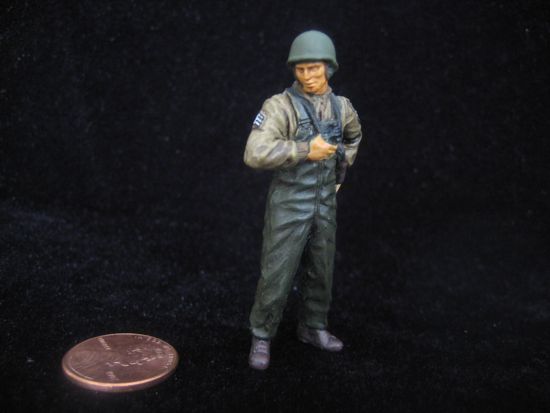
49. David Shields’ MILITARY FIGURE story. Excerpt:
MICHEL LEIRIS: If this were a play, one of those dramas I have always loved so much, I think the subject could be summarized like this: how the hero leaves for better or worse (and rather for worse than better) the miraculous chaos of childhood for the fierce order of virility.PAUL FUSSELL: The letterpress correspondents, radio broadcasters, and film people who perceived these horrors kept quiet about them on behalf of the War Effort.
BEN SHEPHARD: From early on in the war, the RAF felt it necessary to have up its sleeve an ultimate sanction, a moral weapon, some procedure for dealing with cases of “flying personnel who will not face operational risks.” It was known as LMF or “Lack of Moral Fibre.” Arthur Smith ‘went LMF’ after his twentieth “op.” The target that night was the well-defended Ruhr and the weather was awful. Even before the aircraft crossed the English, he had lost control of his fear; his “courage snapped and terror took over.” “I couldn’t do anything at all,” he later recalled. “I became almost immobile, hardly able to move a muscle or speak.”
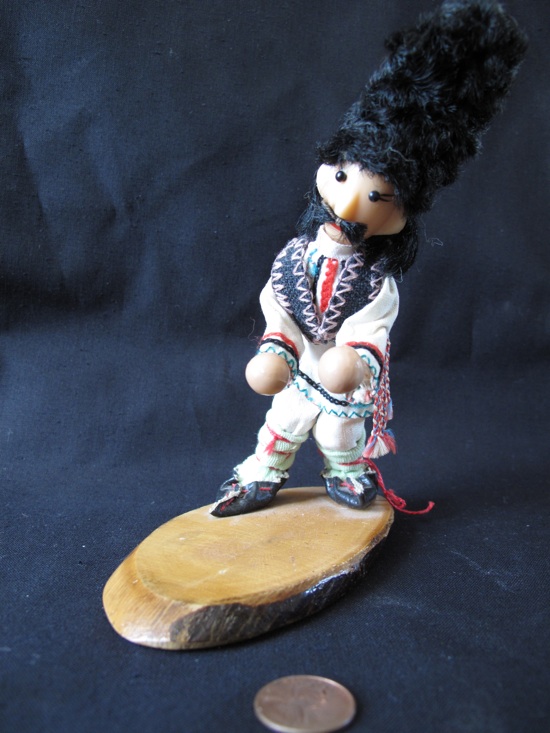
50. Doug Dorst’s RUSSIAN FIGURE story. Excerpt:
From a high window, someone saw Vralkomir leave his shop, glance around the empty village square, then trudge into the forest. He returned hauling a freshly cut tree. In the square, he sawed the wood into discs like the one you see on the icon. Vralkomir then hopped onto one of the discs and began dancing, dancing, dancing to the tuneless music in his head. He danced faster and faster. The villagers watched as he wheeled and spun and tappatapped, his legs and feet a blur in the subarctic gloom. A plume of smoke rose from under his feet, and he kept dancing, and then there was more smoke, and he danced on, and soon the wooden disc was ablaze. Vralkomir leapt to the next disc and set it alight, and the next, and the next, and the Dnobstians came out and gathered round the fires, drinking in the precious warmth, happy to be alive. The bearded man danced all winter, they say, as no one else in the village could duplicate his feat of terpsichorean ignition, and he died of exhaustion in mid-April, a beloved martyr. Some say he had stitched contraband flints into his soles; others claim he lit the fire with dance alone. My grandmother preferred the latter, and so do I.
MORE NEWS: For updates about the Significant Objects project and forthcoming collection, visit the archive and subscribe via RSS. For Author Updates, visit the archive and subscribe via RSS. Also: Check out the Significant Objects Bookstore!
